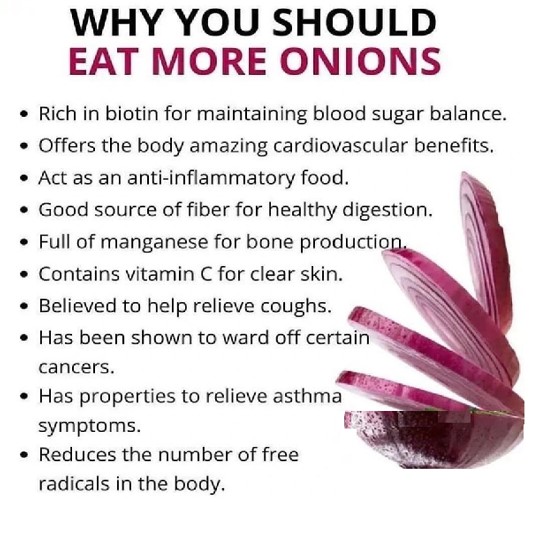Onions, a staple in many diets worldwide, offer a wide array of health benefits that can be particularly advantageous for older adults. Rich in essential nutrients, antioxidants, and compounds with medicinal properties, onions are more than just a flavorful addition to meals—they are a valuable asset in promoting health and longevity. Here’s how onions benefit elders:
Rich in Antioxidants
Onions are loaded with antioxidants, including quercetin and sulfur compounds. These antioxidants combat oxidative stress, which is linked to aging and the development of chronic diseases such as heart disease, cancer, and Alzheimer’s. Quercetin, in particular, is known for its anti-inflammatory and immune-boosting properties, helping elders maintain better overall health.
Supports Heart Health
Heart health is a primary concern for older adults, and onions can play a role in promoting cardiovascular wellness. The sulfur compounds in onions can help lower cholesterol levels, reduce high blood pressure, and improve blood circulation. Additionally, quercetin in onions is linked to reduced blood pressure and decreased heart disease risk by protecting blood vessels and reducing inflammation.
Bone Health
Maintaining strong bones becomes increasingly important as people age, and onions can help in this regard. Research suggests that onions may increase bone density, particularly in postmenopausal women, by reducing oxidative stress on bone tissue. Regular consumption of onions has been associated with a lower risk of osteoporosis, a condition that weakens bones and increases the risk of fractures in elders.
Boosts Immune System
Onions contain compounds such as allicin, which have antimicrobial and antiviral properties. For seniors, who may be more susceptible to infections and weakened immune responses, onions can provide an immune boost, helping to fend off common illnesses such as colds, flu, and respiratory infections.
Digestive Health
As elders often face digestive issues, onions can be a helpful addition to the diet due to their fiber content. Onions contain inulin, a prebiotic fiber that feeds beneficial bacteria in the gut. A healthy gut microbiome is crucial for proper digestion and can help prevent constipation, bloating, and other digestive problems common in older adults.
Anti-Inflammatory Properties
Chronic inflammation is a significant factor in many age-related diseases, including arthritis and diabetes. The anti-inflammatory compounds in onions, particularly quercetin, help reduce inflammation throughout the body. For elders suffering from arthritis, onions may offer relief by reducing joint pain and stiffness.
Cancer Prevention
Onions contain various compounds, such as flavonoids and sulfur compounds, that have been shown to inhibit the growth of cancer cells. Regular consumption of onions has been linked to a reduced risk of certain cancers, including stomach, colorectal, and prostate cancer, which are more common in older adults. The antioxidants in onions help protect cells from damage and reduce the risk of cancer development.
Enhances Cognitive Function
Cognitive decline is a concern as people age, but onions may help support brain health. The antioxidants in onions, especially quercetin, have been shown to protect brain cells from oxidative damage, potentially lowering the risk of neurodegenerative diseases like Alzheimer’s and dementia. Additionally, the anti-inflammatory properties of onions can help reduce inflammation in the brain, promoting better cognitive function in seniors.
Promotes Healthy Skin
Onions are rich in vitamins A, C, and E, which are essential for healthy skin. For elders who may experience skin thinning or dryness due to aging, the antioxidants in onions help protect the skin from free radical damage, maintain moisture levels, and promote skin repair. Onions can also improve wound healing due to their antimicrobial properties.
Incorporating Onions into the Diet
Onions are versatile and can easily be included in various dishes to maximize their health benefits. Here are some tips for adding onions to the diet:
- Raw onions: Add to salads, sandwiches, and salsas.
- Cooked onions: Include in soups, stir-fries, or as a side dish.
- Onion tea: This traditional remedy is believed to help with respiratory issues and inflammation.
- Roasted onions: These can be a delicious and soft addition to meals, perfect for elders with dental issues.
Precautions
While onions offer many health benefits, some elders may need to be cautious, especially if they suffer from gastrointestinal issues like acid reflux or irritable bowel syndrome (IBS), as onions can trigger symptoms in some individuals. Additionally, those on blood-thinning medications should consult their doctor before increasing onion intake due to the blood-thinning properties of certain onion compounds.
Conclusion
Onions are a nutritional powerhouse with significant health benefits for elders. From promoting heart health and strengthening bones to enhancing cognitive function and supporting immune defenses, onions can contribute to a healthier and more vibrant life for older adults. Incorporating onions into a balanced diet can help elders reap these benefits and support healthy aging.
ChatGPT can make mis



